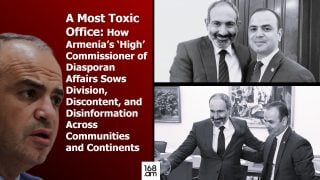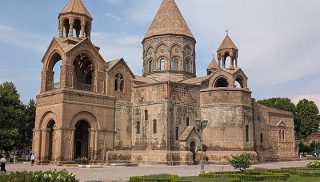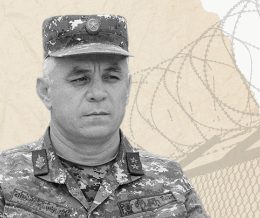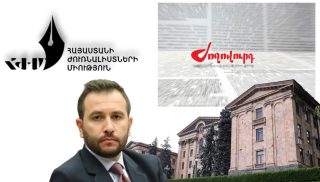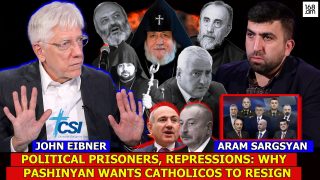
“Washington will act from force positions within NK conflict settlement”
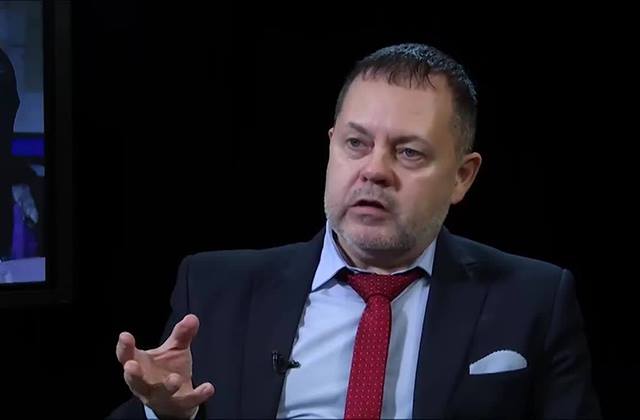
Interview with Grigory Trofimchuk, foreign affairs, security and defense analyst.
Mr. Trofimchuk, on account of recent statements by representatives of NK conflict sides—Russia and the USA, what do you think at which stage are NK conflict peaceful settlement negotiations and how negotiations may develop in future?
NK conflict peaceful settlement negotiations are at the stage they were in late April 2016, if not taking into consideration the obvious decline of intensiveness of negotiations. Currently there are no meetings, statements, visits. Maybe someone considers that everything has been settled, mitigated, forgotten, even more, returned to its standard format, existent prior to the April war. This is hazardous delusion.
Threat of current sleep is that status-quo seal has been eliminated from the conflict, and the situation may pop at any moment. Armenia and Azerbaijan aren’t the same as prior to April. Azerbaijan is always ready to wage a war, and Armenia isn’t ready to concede a millimeter land, no matter in which status they may formally be.
Even resolutions adopted in Vienna and St. Petersburg, referring to conflict settlement wider spectrum, they should have been implemented in accordance with decisions adopted in those summits. Almost nothing is known to the observers on steps to be implemented pursuant decisions made in the abovementioned summits. There is no answer to a range of crucial issues: who initiated the war? who should bear the responsibility, including financial and economic?
Thus, at worst negotiations will again activate to show existence of efforts. However, under the worst scenario decision won’t be accepted, like before. And purpose of negotiations, as always, is prevention, so that situation didn’t turn into a military. This, of course, is tactics without any strategy.
In your opinion, why did Mammadyarov leave for Moscow and was back from negotiations discontented? Also there was information that Moscow attempts to organize a meeting on the level of Foreign Ministers of Armenia and Azerbaijan. What was Moscow’s scenario of negotiations at this stage and why does Azerbaijan oppose to that?
Azerbaijani FM’s visit to Moscow was conditioned by incessant desire of speedy settlement, with the desire at least to pass on some dynamics to the process in an empty atmosphere. Thus, meeting results couldn’t but be formal. For this very reason Mammadyarov publicly expressed his discontent on the process, which diplomatically isn’t so proper. If nerves of top diplomats are on edge, general tension on the conflict zone can be imagined, from where continuously killed soldiers are being taken out.
The situation is tense even if not speaking of general geo-political situation—new administration in the White House, which, in its turn, inserts a nerve in the process, as several participants, parties to the conflict don’t realize where the situation flows and whether it’s worth waiting for a signal from Washington. Moreover, when the new factor of sharpening the situation in the South Caucasus is ready—Donald Trump’s sharp negative attitude toward Iran. Meetings on the level of FMs have always been, and will be as usual. However, currently those meetings don’t resolve anything.
Moscow has one scenario—not allowing military tension of the conflict, war, as overcoming two wars far from one another (Donbas, Karabakh) is less probable for any participant. As for Azerbaijan, that side appears from the positions of return of territories as soon as possible. Baku is ready to observe different schemes, however, the main criteria is as follows: exactness and speed. Neither the first nor the second are available and this makes Azerbaijani authorities nervous.
Do you observe tension in relations of Moscow and Baku? If yes, what do you think, what is that tension conditioned by?
There is no tension between Baku and Moscow. As I said, there is Baku’s discontent that nothing has been implemented after April. If the situation prolongs, tension is possible, in particular, activation of Washington’s anti-Iranian policy will have its direct reflection in all regional processes, including Karabakh. The crucial issue is Washington’s position toward Azerbaijan, on account of the circumstance that a serious Azerbaijani community lives in Washington. One point can be stated out of this—Russia, Armenia and Azerbaijan have lost their last chance of stabilizing the situation in the region, which was to be used last autumn, when the USA was busy with its own issues. There was no need waiting for concreting of “Trump’s throne”.
US Secretary of State Rex Tillerson recently stated that he’ll work with the authorities of Armenia and Azerbaijan to find peaceful settlement of NK conflict and that unsettled conflict is a threat to regional stability. In your opinion, what will be the position of new administration and Secretary of State, involvement in conflict settlement and how will Moscow and Washington work in this issue?
This is a very serious statement, as many experts surprisingly considered that Trump at least in the first year of presidency won’t reach Karabakh issue. It turned out that this conflict is among not only in the US foreign policy priorities, but is observed by Tillerson as an issue threatening to US security. Seemingly, even transport, raw material schemes don’t so interest Washington, as political settlement of the conflict. It’s beyond suspicion that within NK conflict settlement Washington will act with the very methods operated toward other crucial issues of world order, i.e. from the position of force.
And it’s noteworthy that Trump has acquired its full right due to the fact that the USA sharply strengthened during the 44th president. And currently for the 45th president—Trump, it’s much easier to function, standing on Obama’s shoulders. Trump administration will form and develop its own version of NK conflict settlement and configuration of the South Caucasus, and other countries will have to, unfortunately, either obey, or go through direct confrontation. This isn’t democrat Obama, who was somewhat easy to convince.
By Araks Martirosyan





